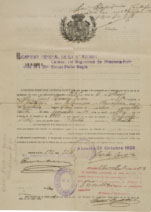
years of
Carmencita

1923
The beginning
of the company
Jesus Navarro
graduates from
the military service.
It is then when
he and his wife,
Carmen Valero,
found Carmencita.
1927
Spain begins
to fly
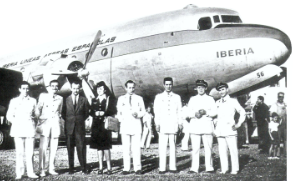
On 28 June 1927 Iberia, Aerial
Transport Company, is founded.
In this decade the routes
to peninsular cities, the Canary
Islands and some points on
the African coast are established.
On 14 December 1927 King
Alfonso XIII presides over
the opening of the first commercial
Madrid-Barcelona flight.
1930
Brand registered
Without a bow, with
a Cordoban hat and dressed
as an Andalusian with a
Manila shawl and carnation,
the Carmencita we know
today is born.
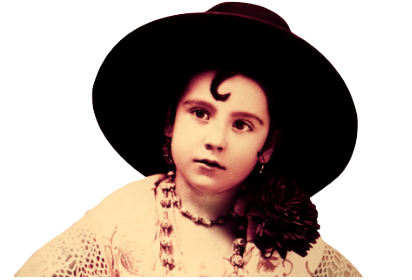
1935
First filmlegends
In 1935, “La Verbena de la
Paloma (The Fair of the Virgin
of la Paloma)” of Benito Perojo,
becomes the first great
Spanish film hit. In 1939,
Luis Buñuel and Dalí,
premiere “Un perro andaluz
(The Andalusian dog)” in Paris.
1945
The difficult
1940s

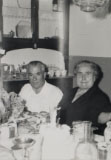
1957
The first "Seiscientos" start up

The production of the first 5,000
Seat 600s is begun. Reflection of
an emerging Spain in which a certain
amount of economic growth is
noted. “The day that Spaniards got
into the 600, they began to distance
themselves from their past and
started a weekend outing trom
which they have still not returned”.
Manuel Vazquez Montalbán.
1960
MoreCarmencita
At the beginning
of the 1960s,
the range of
Carmencita
products is
enlarged and
diversified
with small
boxes and jars.

1965
The Beatles give
two concerts in Spain

The Franco
government tried
to block the entrance
of the Beatles until
the last minute.
Finally, it was
Queen Elizabeth who,
citing the character
of the Knights of the
Order of the British
Empire, succeeds
in their being able
to enter Spain and
give the two scheduled
concerts, but with an
enormous detachment
of police in the areas
around the two
facilities.
1970
Second Carmencita
generation
The display of products is
modernised. Carmencita
reaches all of Spain and
begins exporting to South
America. Second generation,
Carmencita reaches
Barcelona.

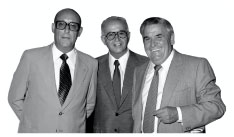

1982
Our first
Oscar award
“Volver a empezar (Begin the
Beguine)”, from José Luis Garci,
becomes the first Spanish film
awarded an Oscar as the best
foreign language film. Spanish
director Buñuel won in 1973 with
“El discreto encanto de la burguesía
(The Discreet Charm of the Bourgeoisie)”, but he represented
France and it was filmed in French.
1985
Spanish paella

1990
Expansion
of the brand


1992
Barcelona
Olympics Games
9,356 athletes from
169 national committees
participate in the first
Olympic Games without
boycotts of any type,
something unheard of since
Munich 1972. Barcelona is
transformed into a great
European capital, showing
the world the new
democratic Spain.
Juan Antonio Samaranch,
president of the IOC, rates
them at the closing as
“the best Olympic Games”
of the modern era up to then.
2000
Carmencita 2000

The company enters
a new stage on its road,
with a strong boost
in innovation and quality
control from the start
of the process to the
finished product.
2010
Spain wins the
Football World Cup

Spain wins its first
Football World Cup
in South Africa
in 2010 in a tough
final game against
Holland. In minute
116 of overtime,
a goal by Andrés
Iniesta allows
Spain to win
the World Cup
for the first time.

2017
The Carmencita
Chair
Carmencita creates the Chair for Studies
of Culinary Flavour with the University of
Alicante with primary goal of developing
research activities in the culinary sphere,
and in particular those related to the
world of flavours and the culinary wealth
present in Mediterranean food culture.
2023
The largest
spice factory
in Europe

Carmencita is going to open this year
the most modern factory in Europe,
which involves adapting the brand to new
production technologies.

Carmencita turns 100
A centennial is always a reason
to celebrate. 100 years of continuous
work, commercial success and
business development recognised
by the company over the course
of a century.
During 2021, 2022 and 2023,
Carmencita will develop a
communications and media campaign,
and a logo, designed by Estrada Design,
will appear on all company products
and activities.
Carmencita, lending flavour and colour
to your life for 100 years.
Mission accomplished.
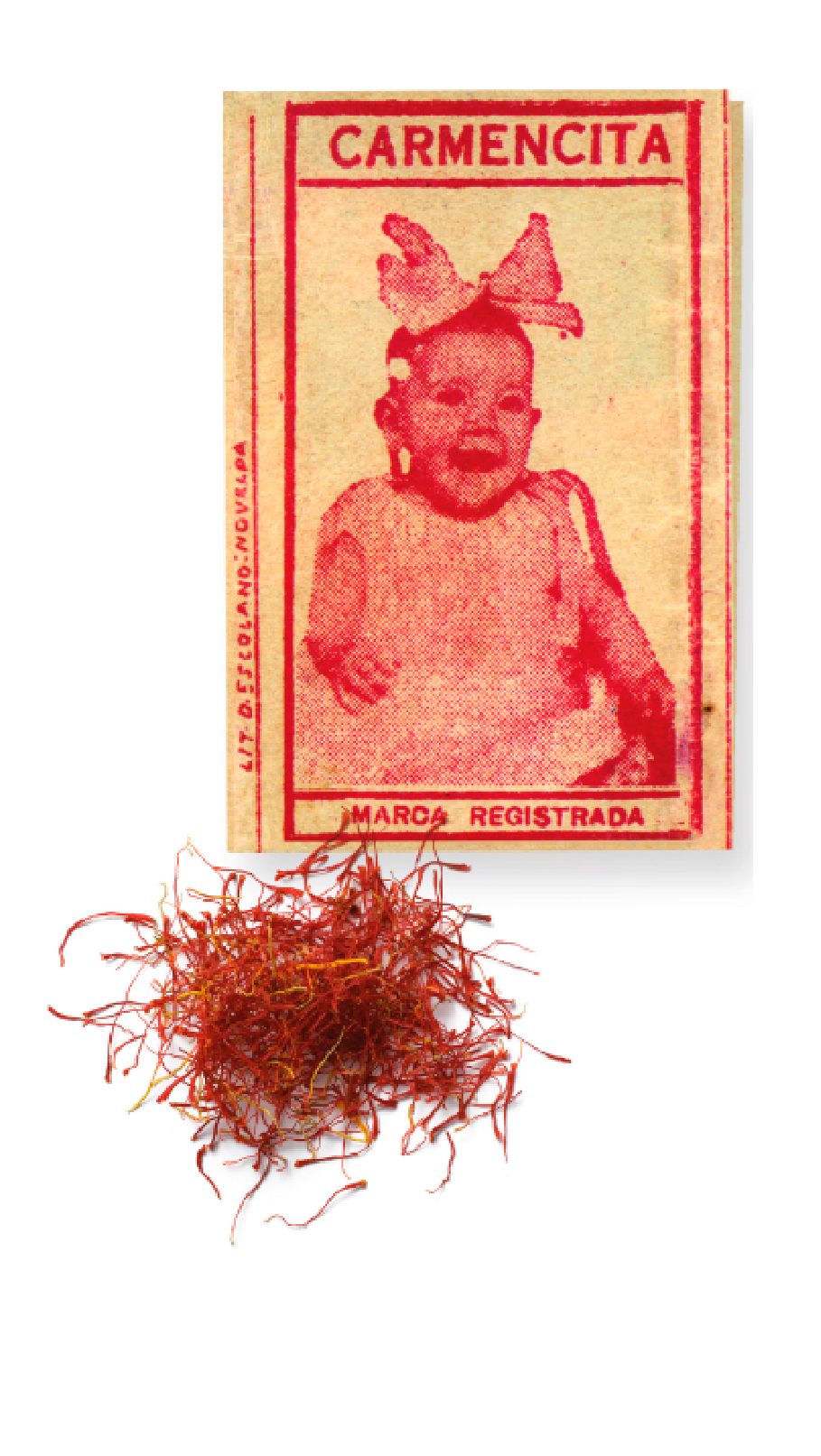
1926
Birth of
Carmencita
Jesus and Carmen's
first daughter, is born;
when Carmencita turns one,
the brand is registered
and the photo taken with
an enormous bow on her
head, which is what appears
on the sachets of saffron.
1929
The first
skyscrapers

The Telefonica
building is erected
between 1926
and 1930, and was
the first skyscraper
in Spain and, for
a brief time,
the tallest building
in Europe. Inside it
1,800 people
worked, including
the famous
telephone operators
who inserted
the plugs into the
big switchboard.
Football
arrives

The first year
of the Spanish
football league is
opened. The first
league champion
is the Barcelona
Football Club.

1931
Spanish women
gain the vote
Female suffrage did not exist in Spain
at the beginning of the 1930s. Member
of parliament Clara Campoamor,
standard bearer for the suffragist
movement, gets to see it approved
in parliament on 1 October 1931.

The businessmanJesus Navarro
Jover.
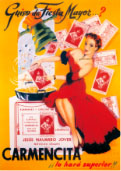
1938
The first
advertising
During the years
of the Second Republic,
Carmencita starts
to advertise, with
ads for its sachets
of saffron in cinema
intermissions
and on advertising
hoardings.
The first machines
are introduced to
speed up the process
of filling the sachets
with saffron, which
marks a big step
toward satisfying
the ever growing
demand and the
possibility of opening
the market to other
spices.
1950

The saffron revolution

Severo Ochoa
de Albornoz,
Spanish physician
and scientist,
is awarded
the Nobel Prize
in Physiology
and Medicine,
along with
Arthur Kornberg,
becoming the 2nd
Spanish Nobel
Prize-winning
scientist after
Ramón y Cajal,
who won in 1906.

1959
Severo Ochoa wins
the Nobel Prize
In a few years, Spain is
positioned at the head
of the countries receiving
tourists in Europe. In the
following years, Europe
continues to be the main
source of our tourists
with an average annual
percentage of 80 %
of all entrants between
1961 and 1970.
1964
The arrival
of tourism
1968
Massiel wins Eurovision

Massiel, a young woman of only 20, writes
one of the most glorious pages in our
musical history by wining for the first time
for Spain a contest that has always danced
with political connotations. The year was
not just any year: May in France, protests
against the Vietnam War in the United
States and the assassinations of Martin
Luther King, Jr and Robert F. Kennedy, are
some of the events that took place during
that year.

Jesus Navarro opens
the elementary school in
Novelda bearing his name.

1979
The elementary school
with the name of the
Founder of Carmencita
1984
Alpha, beta, Spain
In the 20th century,
and above all in the last third,
Spain made enormous
progress in reducing illiteracy,
going from 64 % at the
beginning of the century
to only 1.2% currently.
1986
Entrance intothe European Union

The Spanish High Speed (AVE)
train is opened to cover
the Madrid-Seville route
on the occasion of Expo’92
in Seville and the Olympic
Games in Barcelona.

1992
The AVE
is opened
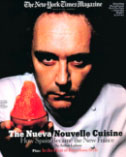
2004
Spanish cuisine
joins the best
in the world
It revolutionised
the world of gastronomy
and introduced a new era.
The New York Times
magazine included chef
Ferran Adrià in its list
of the ten most innovative
people in the world in 2004.

2012
A great book
for a great brand
2020
Spanish health care,
leader in transplants
Spain remains for another year, for 28 consecutive years in total, the world leader in organ donation, with a rate of 49,6 donors per million inhabitants.

